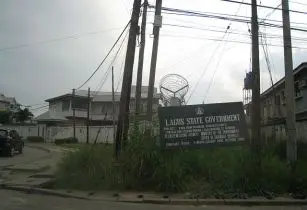Pade Durotoye, CEO, Oando Energy Resources, and Austin Avuru, CEO and managing director, Seplat, spoke to Oil Review Africa after their presentations at Africa Oil Week
Mr Durotoye said that the industry in Nigeria has come through "dark, grey periods of cutbacks, cutbacks, cutbacks". When asked if operators would learn lessons from this downturn, Mr Durotoye said that companies "got fat and bloated when times were good - we've seen it over and over" but costs were driven up because of "competitive pressure". He said that this time "capacity should be managed better".
In regard to the Petroleum Industry Bill (PIB), he said it was "very difficult to say" when it would be passed but "the rhetoric is that the current senate president is very eager" to see the bill become law, so there is a "strong chance" this will happen in 2018. However, he added that operators should start making positive changes now rather than "wait for the future".
Improved security, particularly in the Niger Delta region, has improved confidence, according to Mr Durotoye. Now is the time, he said, "to make investments as quickly as possible, as efficiently as possible".
"The stars are aligning and we are able to fulfil that promise," Mr Durotoye said.
Austin Avuru was upbeat about the prospects for gas in Nigeria, reflecting one of the big trends of Africa Oil Week: "We like the mix, the additional security gas provides."
Seplat will be focused on making the "quantum leap" to supplying the gas-to-power market to increase domestic consumption in Nigeria, with a view towards contributing to the country being energy self-sufficient by 2021. Mr Avuru is confident this will be a win-win, telling Oil Review Africa that it is "commercially sensible" while meeting a "noble objective".
The company is committed to onshore gas development with existing infrastructure making it easy to take gas to market.
With the industry still recovering from the low oil price environment of recent years, Mr Avuru explained the restrained approach Seplat is taking to planning projects.
"We remain cautious about the oil price," he said, adding that Seplat will not undertake a project if it does not fit a US$45-$50 oil price scenario.
Mr Avuru is confident that by the end of 2017, the progress of the PIB will "reach the point of no return" and he is "personally confident" it will pass in the new year. This, in turn, he says will provide "more certainty [and] attract investment".
"Partnerships are always an option [if they] add value," Mr Avuru said.
While neither Mr Durotoye or Mr Avuru would commit to plans to build refineries, both leaders are watching the progress of the Dangote Group's Lekki refinery with interest.
"The market pressure is there, the logic is there," said Mr Durotoye, suggesting that Aliko Dangote would not invest in a refinery project without good reason.
"He must know something the rest of us don't," he told Oil Review Africa.
Mr Avuru said that in regard to refinery development, the Dangote Group "boxed it into a corner".
With Emmanuel Ibe Kachikwu, Nigeria's petroleum minister, talking up the drive towards greater private sector involvement in the Nigerian downstream sector, time will tell if other private operators will invest in refinery projects after carefully observing the progress of the Lekki refinery.








